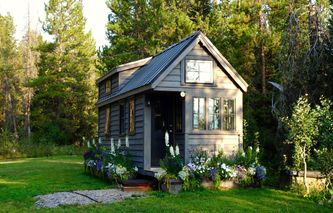The process involves more than just finding a house you like and signing some papers.
It demands an honest look at your finances, a clear understanding of what you truly need, and a strategic approach to everything from choosing a neighborhood to securing a loan.
In today’s competitive real estate markets, first-time buyers who are prepared have a distinct advantage, and that preparation can mean the difference between loving your first home and regretting a rushed decision.
Before you jump into house hunting or fall in love with a property on a whim, take a step back.
Here's what you need to consider and do to set yourself up for a smooth, successful home-buying journey.
1. Understand Your True Budget
It’s tempting to start house hunting based on how much a lender pre-approves you for, but that number doesn't always reflect what you can comfortably afford.
Consider your full financial picture:
Monthly expenses: Beyond the mortgage, factor in utilities, maintenance, property taxes, insurance, and HOA fees.
Emergency savings: After buying a home, you should still have a safety net for unexpected costs.
Lifestyle choices: Plan a budget that lets you continue enjoying your hobbies, traveling, or saving for retirement.
Use the 28/36 rule as a guideline: spend no more than 28% of your gross monthly income on housing costs and no more than 36% on total debts.
2. Get Pre-Approved, Not Just Pre-Qualified
There’s a big difference between pre-qualification and pre-approval:
Pre-qualification is an informal estimate based on unverified information.
Pre-approval means a lender has verified your finances and given you a conditional commitment.
A mortgage pre-approval letter shows sellers you're a serious buyer and can give you a competitive edge in hot markets.
3. Prioritize Location Over Everything
You can renovate a home, but you can't move it. Location should be at the top of your priority list:
Research neighborhoods: Look at crime rates, school districts, amenities, and future development plans.
Commute time: Try the commute during rush hour before committing.
Resale value: Even if this is your “forever home,” life changes. Think about the property’s future marketability.
4. Build a Strong Support Team
You're about to make one of the biggest purchases of your life, you need the right people in your corner:
Real estate agent: Find someone experienced with first-time buyers and knowledgeable about your local market.
Mortgage broker/lender: Shop around for the best rates and programs for first-time buyers.
Home inspector: Always hire an independent, thorough inspector, never skip this step.
Choosing a strong team can mean the difference between a smooth process and a stressful ordeal.
5. Know Your Must-Haves vs. Nice-to-Haves
Before you start touring homes, make two lists:
Must-haves: Non-negotiables like the number of bedrooms, home office space, or a backyard.
Nice-to-haves: Features you’d love, like a pool or an updated kitchen, but could compromise on.
Having clarity prevents you from getting emotionally attached to the wrong house or overspending on features you don’t truly need.
6. Factor in the Hidden Costs
First-time buyers often underestimate how much they’ll spend beyond the purchase price. Be prepared for:
Closing costs (typically 2–5% of the loan amount)
Moving expenses
Immediate repairs or updates
New furniture and appliances
Higher utility bills than your previous rental
Set aside an additional 1–3% of the home’s price annually for maintenance and unexpected repairs.
7. Take Your Time and Stay Level-Headed
In a competitive market, it’s easy to feel pressured into making fast decisions or waiving contingencies like inspections. Resist the urge.
This is a major investment, and rushing can lead to costly mistakes.
Remember: it's better to miss out on a "good" house than end up stuck with a "bad" one.
Setting Yourself Up for Long-Term Success
Buying your first home isn’t just a financial transaction, it’s a commitment to a new lifestyle and a significant personal achievement. Every decision you make during this process will have a ripple effect on your future finances, daily comfort, and overall happiness. That’s why preparation isn't just helpful, it's absolutely essential.
Take the time to understand your true budget and future expenses. Build a team of trusted professionals who can guide you with expert advice. Stay grounded in your needs rather than your emotions, and always keep long-term value in mind, not just immediate gratification.
Remember, the perfect home isn’t necessarily the most glamorous one, it’s the one that fits your life, your goals, and your financial plans. With a little patience, a lot of preparation, and a smart strategy, you’ll be ready to make one of the best investments of your life, turning a house into a home that truly feels like yours.
.jpg)


